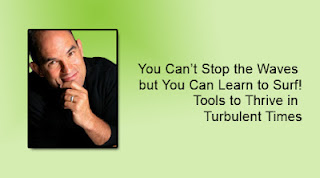Life is a Daring Adventure
April 26, 2012
Today I was lucky enough to have been invited to an event with one of the furniture companies that I am working with on a job. When the invitation came over I was excited not only to be able to attend a fantastic breakfast conference where I would be able to network with some vendors and co-workers, but included in the invitation was a bio for the speaker that would be highlighting the event.
"Dr. J.P. Pawliw-Fry is an author and performance coach to Olympic athletes and business leaders. He melds innovative research with powerful inspiration to create thought-provoking and moving keynote presentations. An expert in emotional intelligence, he is one of the world’s most highly sought-after speakers on the topic.
Using cutting edge research and personal stories from the world of sports and business, Dr. Pawliw-Fry teaches his audiences the principles of emotional intelligence and high performance; he inspires and challenges them to take their careers, businesses and personal lives to the next level."
Let me tell you, this guy was one of the most amazing speakers I have ever heard. He talked for almost an hour and a half and it seriously felt like 10 minutes. The conference was for emerging business leaders and the room was filled with well over 200 interior designers and architects of all levels. The title of his seminar was "Being Your Best When it Matters Most." He hit on so many key topics that really made so much sense. I am really going to work on incorporating them into my daily life as well as my work life.
The first thing he had us do was write down the 6 most valuable characteristics of a leader in our business. Immediately I wrote organized, compassionate, intelligent, trustworthy, knowledgeable and patient. He than went on to discuss the difference between IQ (intelligence quotient) and EQ (emotional quotient). Explaining that our IQ is not what makes us a "star." That he would bet that the majority of the characteristics that we listed above were related to a persons EQ, that their emotional connection with their employees was more relevant in this sense than their intelligence. Personality is very important when becoming a leader.
We did a second exercise where we had to rate ourselves and where we thought our spouse, boss and direct supervisor would rate us on the same scale in regards to three questions;
- I freely admit to making mistakes
- I pay attention and listen without jumping to conclusions
- I engage in difficult conversations
I very quickly realized that I act must more instinctively and impulsively outside of the workplace than I do in situations that involve my career. In all three situations I had Hubs on one end of the scale and my boss and supervisor on the other end with myself in the middle. Certainly made me stop and think of why that might be and how I might be making people feel.
Of course he did some talking about the human brain, how we think and which part of the brain processes what information. Most people already know and understand that we "feel before we think." He broke down what it is like to have a "amygdala hijack" which is when we have to make sudden/unexpected decisions, do something against our will or be forced. This is when part of the brain is overloaded and we have a decrease in working memory, which in turn results in impulsive decisions without much thought. We have to learn to be cognitive of those triggers in our lives to control this.
Finally we discussed "building bridges" with others, understanding that no two people think the same and we often confuse impulse with intent. We let our emotions drive our behavior. The most important thing he said was "we judge ourselves on intention and we judge others on their impact." This clearly shows that we have to try to understand that a person more often than not has a different intention in their actions, but we understand it differently on the other side of the "bridge." He said "its not about being right, its about getting the results that we desire. We must clarify our intentions"
When bridging the gap we must walk to the other side and build the bridge backwards to our own side, try to understand what the other persons intent was. We judge when we have less than 5% of the total information. He made it clear that there were three steps in bridging the gap;
- Voice: People want to be heard
- Value: People want to be valued
- Feedback: People want to know where they stand.
You must learn to show value. "Say what you mean, do what you say, finish what you start and start on time. The average person has 60,000 thoughts in one day, how clear are your thoughts?
If you want more information on Dr JP Pawliw-Fry you can see it here... www.ihhp.com/jp.htm
.
Today I was lucky enough to have been invited to an event with one of the furniture companies that I am working with on a job. When the invitation came over I was excited not only to be able to attend a fantastic breakfast conference where I would be able to network with some vendors and co-workers, but included in the invitation was a bio for the speaker that would be highlighting the event.
"Dr. J.P. Pawliw-Fry is an author and performance coach to Olympic athletes and business leaders. He melds innovative research with powerful inspiration to create thought-provoking and moving keynote presentations. An expert in emotional intelligence, he is one of the world’s most highly sought-after speakers on the topic.
Using cutting edge research and personal stories from the world of sports and business, Dr. Pawliw-Fry teaches his audiences the principles of emotional intelligence and high performance; he inspires and challenges them to take their careers, businesses and personal lives to the next level."
Let me tell you, this guy was one of the most amazing speakers I have ever heard. He talked for almost an hour and a half and it seriously felt like 10 minutes. The conference was for emerging business leaders and the room was filled with well over 200 interior designers and architects of all levels. The title of his seminar was "Being Your Best When it Matters Most." He hit on so many key topics that really made so much sense. I am really going to work on incorporating them into my daily life as well as my work life.
The first thing he had us do was write down the 6 most valuable characteristics of a leader in our business. Immediately I wrote organized, compassionate, intelligent, trustworthy, knowledgeable and patient. He than went on to discuss the difference between IQ (intelligence quotient) and EQ (emotional quotient). Explaining that our IQ is not what makes us a "star." That he would bet that the majority of the characteristics that we listed above were related to a persons EQ, that their emotional connection with their employees was more relevant in this sense than their intelligence. Personality is very important when becoming a leader.
We did a second exercise where we had to rate ourselves and where we thought our spouse, boss and direct supervisor would rate us on the same scale in regards to three questions;
- I freely admit to making mistakes
- I pay attention and listen without jumping to conclusions
- I engage in difficult conversations
I very quickly realized that I act must more instinctively and impulsively outside of the workplace than I do in situations that involve my career. In all three situations I had Hubs on one end of the scale and my boss and supervisor on the other end with myself in the middle. Certainly made me stop and think of why that might be and how I might be making people feel.
Of course he did some talking about the human brain, how we think and which part of the brain processes what information. Most people already know and understand that we "feel before we think." He broke down what it is like to have a "amygdala hijack" which is when we have to make sudden/unexpected decisions, do something against our will or be forced. This is when part of the brain is overloaded and we have a decrease in working memory, which in turn results in impulsive decisions without much thought. We have to learn to be cognitive of those triggers in our lives to control this.
Finally we discussed "building bridges" with others, understanding that no two people think the same and we often confuse impulse with intent. We let our emotions drive our behavior. The most important thing he said was "we judge ourselves on intention and we judge others on their impact." This clearly shows that we have to try to understand that a person more often than not has a different intention in their actions, but we understand it differently on the other side of the "bridge." He said "its not about being right, its about getting the results that we desire. We must clarify our intentions"
When bridging the gap we must walk to the other side and build the bridge backwards to our own side, try to understand what the other persons intent was. We judge when we have less than 5% of the total information. He made it clear that there were three steps in bridging the gap;
- Voice: People want to be heard
- Value: People want to be valued
- Feedback: People want to know where they stand.
You must learn to show value. "Say what you mean, do what you say, finish what you start and start on time. The average person has 60,000 thoughts in one day, how clear are your thoughts?
If you want more information on Dr JP Pawliw-Fry you can see it here... www.ihhp.com/jp.htm
.



Comments
Post a Comment